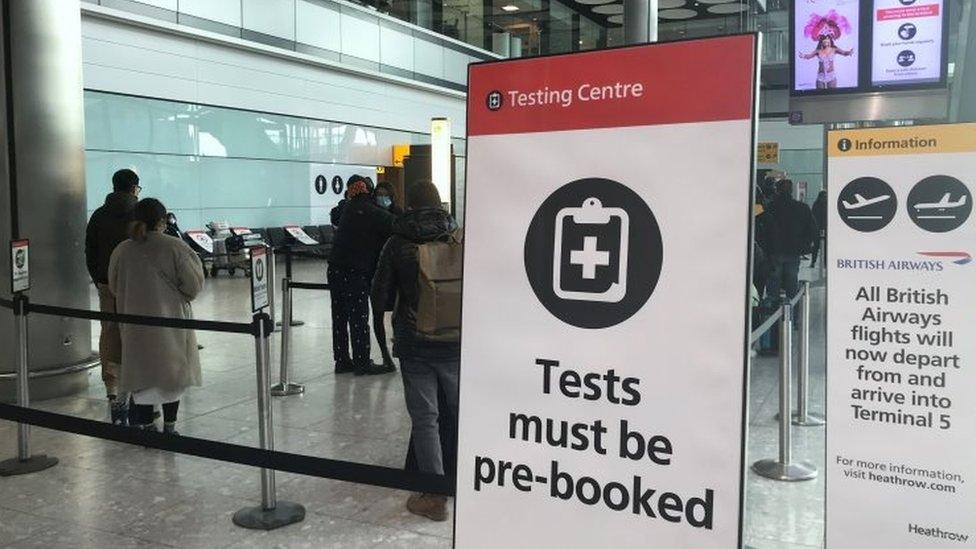Covid: Airport support scheme to open in England
- Published
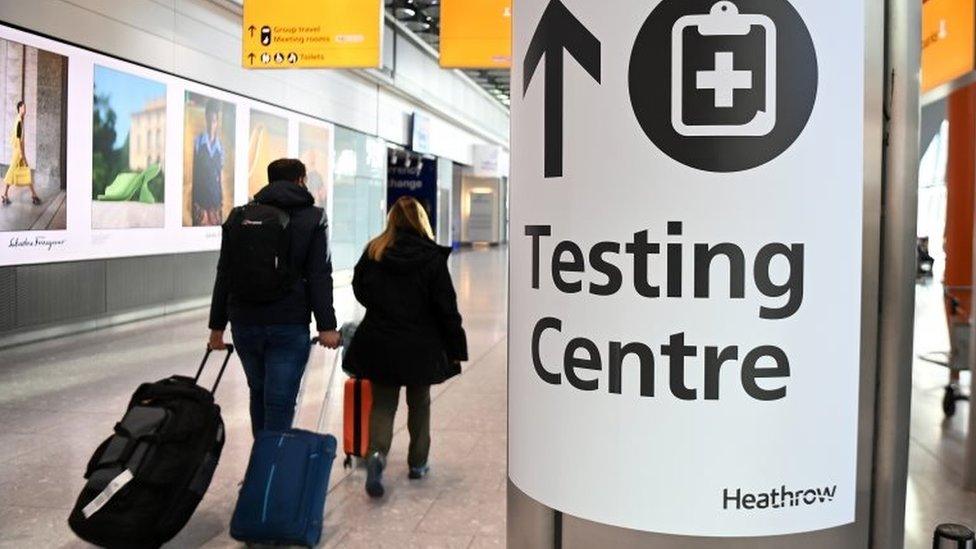
A financial support scheme for airports in England will open this month, the government says, as the aviation sector faces new Covid travel curbs.
Aviation minister Robert Courts said the move was a response to the closure of all UK air corridors from Monday.
The aim was to provide grants by the end of this financial year, he said.
Industry groups had warned there was only so long airports could "run on fumes", following the announcement of the new quarantine rules.
Under the new rules beginning at 04:00 GMT on Monday, external, all travel corridors - which have been in place to allow arrivals from some countries to forgo quarantine - will close.
All arrivals to the UK after that time will need to isolate for up to 10 days, although the quarantine period can be cut short with a negative test after five days.
People will also have to show proof of a negative test taken in the previous 72 hours before travelling.
On Sunday, Foreign Secretary Dominic Raab also told the BBC'S Andrew Marr Show that Public Health England would also be stepping up checks on travellers who must self-isolate, while enforcement checks at borders would also be "ramped up".
He added that asking all arrivals to self-isolate in hotels was a "potential measure" the government was keeping under review.
In a tweet, external, Mr Courts said the Airport and Ground Operations Support Scheme "will help airports reduce" additional costs faced due to the pandemic and that further details would follow soon.
The scheme had first been announced in November, but without a set start date. It will involve grants of up to £8m per applicant, to be used to cover fixed costs, such as business rates.
In a statement at the time, the Airport Operators Association said the scheme would be a relief. However, it said support equivalent to business rates would only go so far and with the pandemic crisis deepening, a broader package of support was needed for all four nations, to see the sector through the next few months.
AOA chief executive Karen Dee said the measures would "provide much-needed support to many embattled airports, helping them through the challenging months ahead".
Prime Minister Boris Johnson announced the changes to the UK's travel rules at a Downing Street briefing on Friday, saying they would "protect against the risk of as yet unidentified new strains" of Covid.
The new rules will be in place until at least 15 February, he said.
A ban on travellers from South America, Portugal and Cape Verde also came into force on Friday, having been imposed over concerns about a new variant identified in Brazil.
New variants causing concern have previously been identified in the UK and South Africa, with many countries imposing restrictions on arrivals from both nations.
Scientists fear the variants seen in South Africa and Brazil may interfere with the effectiveness of vaccines and evade parts of the immune system.
The government's chief scientific adviser Sir Patrick Vallance told the press briefing on Friday that some of the new variants may be able to "get round" the Covid vaccines but it was "really quite easy" to adjust the vaccines to deal with mutations in the virus.
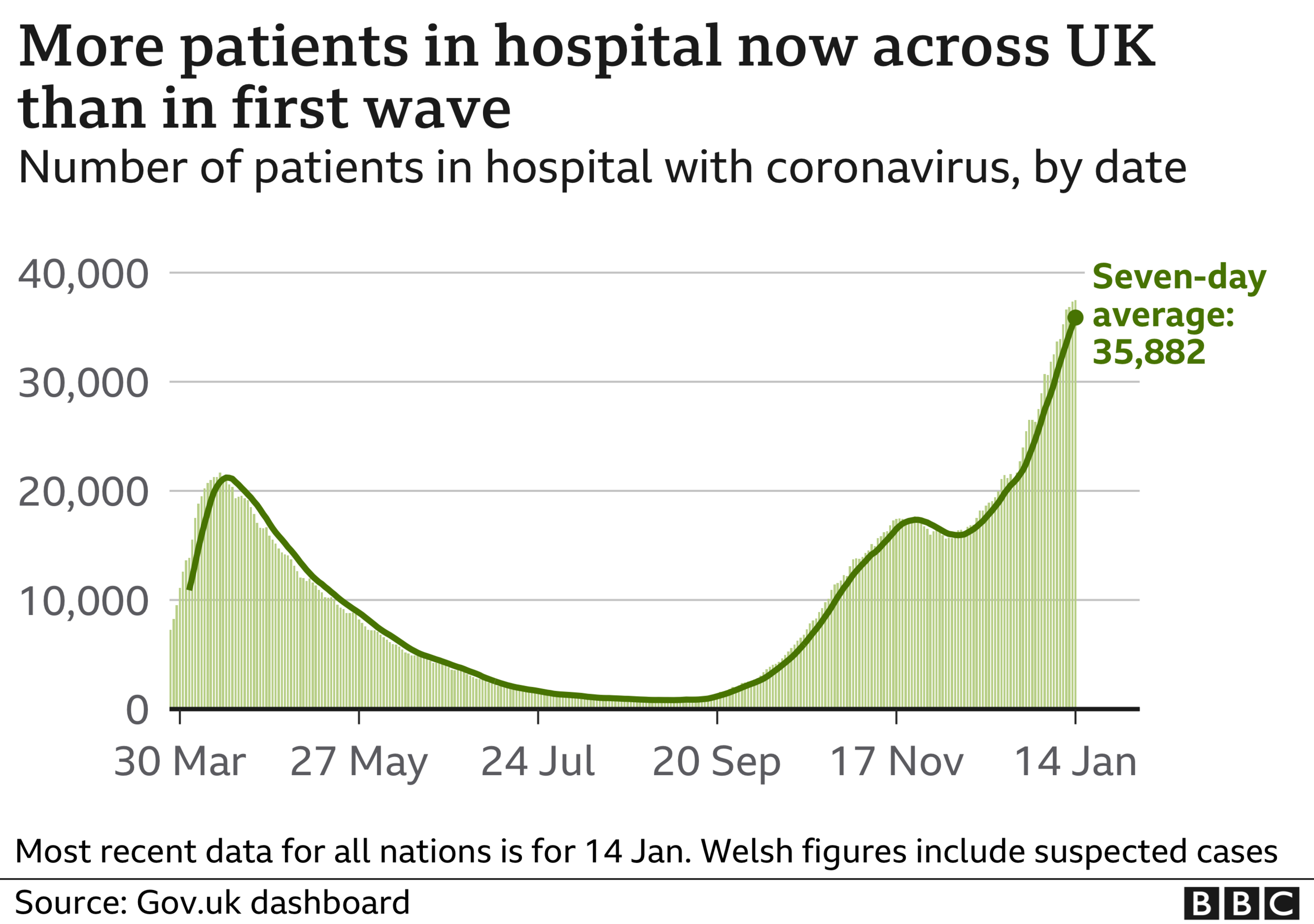

The travel industry said closing the travel corridors was understandable due to the health emergency, but warned it would deepen the crisis for the sector.
Tim Alderslade, chief executive of Airlines UK, said the system had been "a lifeline for the industry" last summer but "things change and there's no doubting this is a serious health emergency". He said he assumed the government would remove the latest restrictions as soon as it was safe.
"We've had no revenue now effectively for 12 months, give or take a few months in the summer last year. If we're going to have an aviation sector coming out of this we need to open up in the summer," he told the BBC.
Travel operators had already been forced to cancel holidays before the latest restrictions were announced.
Earlier this week, Jet2 suspended all flights and holidays until 25 March over "ongoing uncertainty" and budget travel provider EasyJet on Thursday began cancelling holidays up to and including 24 March.
The Department for Transport has said it is supporting the travel industry with an extension to the furlough scheme until the end of April, business rates relief and tax deferrals.
With all parts of the UK under strict virus rules amid high levels of infection, only essential travel is permitted.
On Saturday, another 1,295 deaths within 28 days of a positive Covid test were reported in the UK, and a further 41,346 lab-confirmed cases of coronavirus.
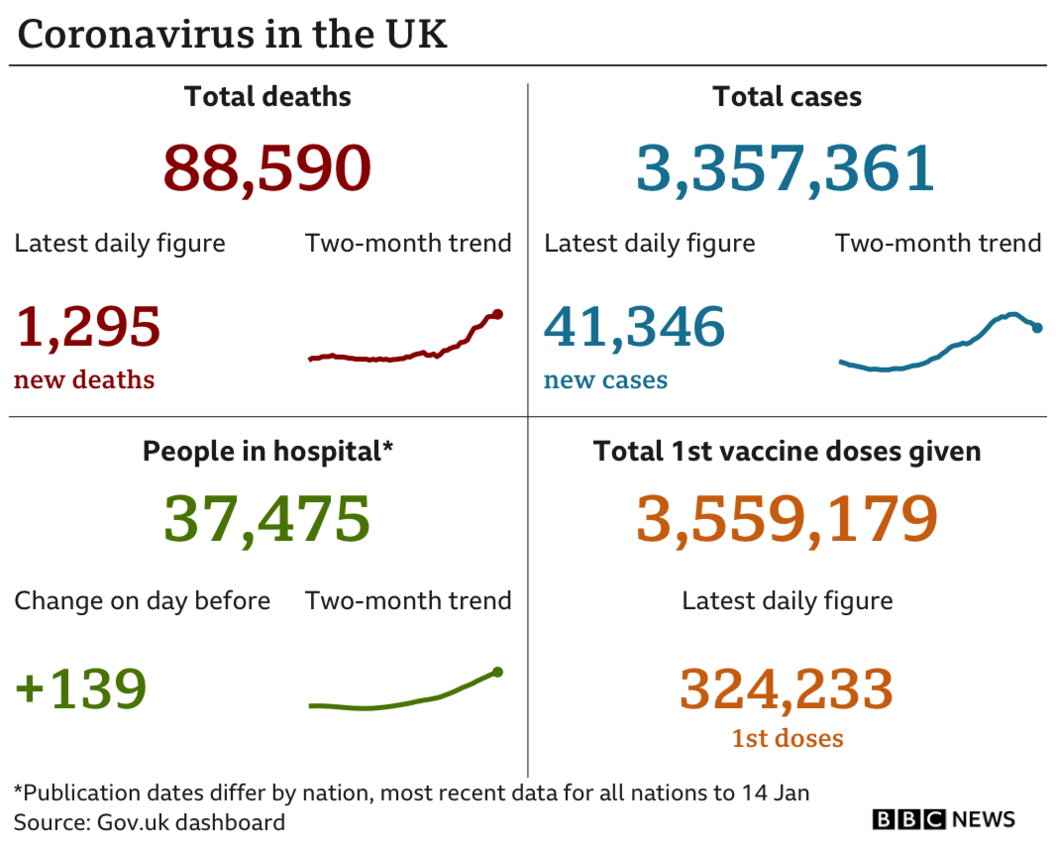

NEWSCAST: How worried should we be about the Brazilian Covid variant?
6 DEGREES FROM JAMIE AND SPENCER: The boys are back! Who’s going to be their first celeb target?


Are you due to travel back to the UK from overseas? Do you work in the travel industry? Email haveyoursay@bbc.co.uk, external.
Please include a contact number if you are willing to speak to a BBC journalist. You can also get in touch in the following ways:
WhatsApp: +44 7756 165803
Tweet: @BBC_HaveYourSay, external
Please read our terms & conditions and privacy policy
If you are reading this page and can't see the form you will need to visit the mobile version of the BBC website to submit your question or comment or you can email us at HaveYourSay@bbc.co.uk, external. Please include your name, age and location with any submission.
- Published25 May 2021
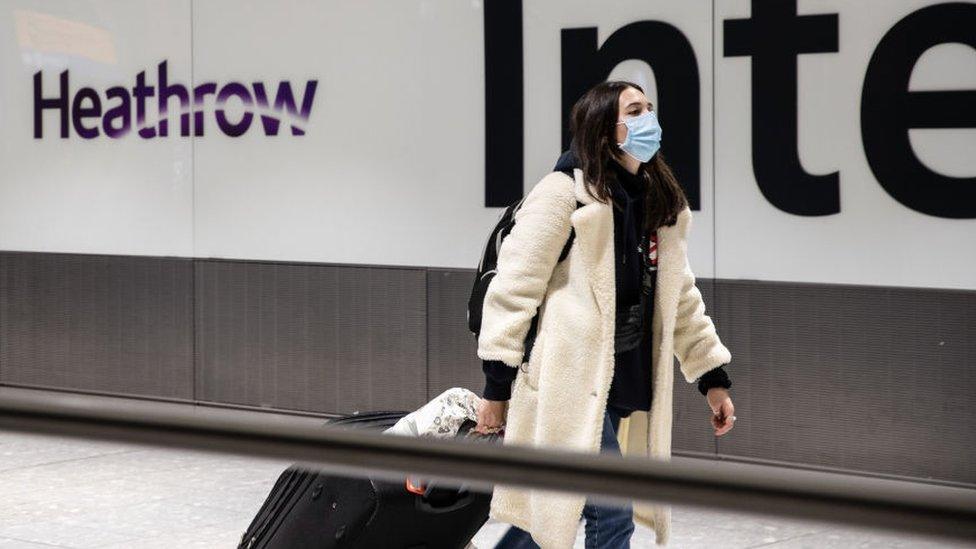
- Published16 January 2021
